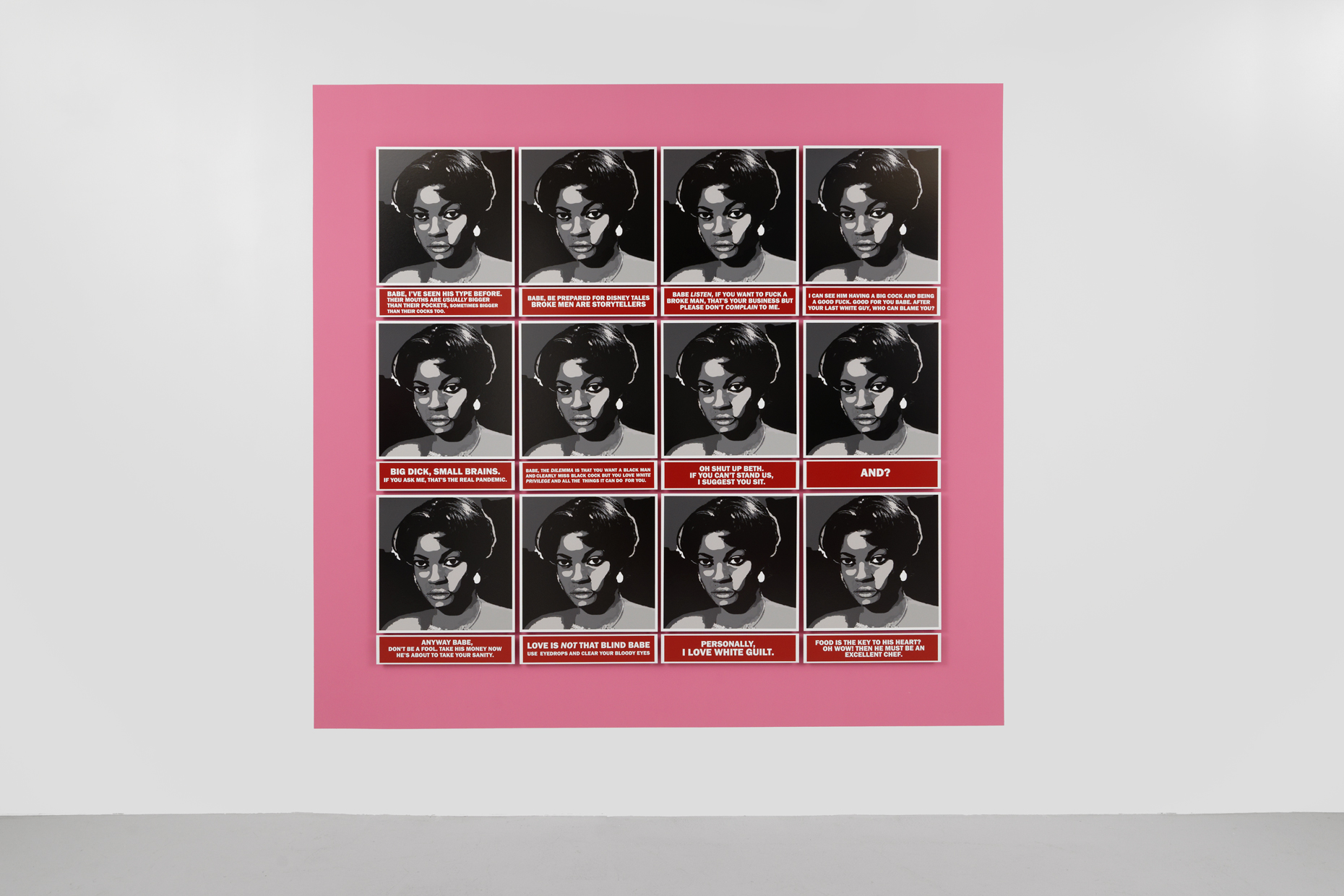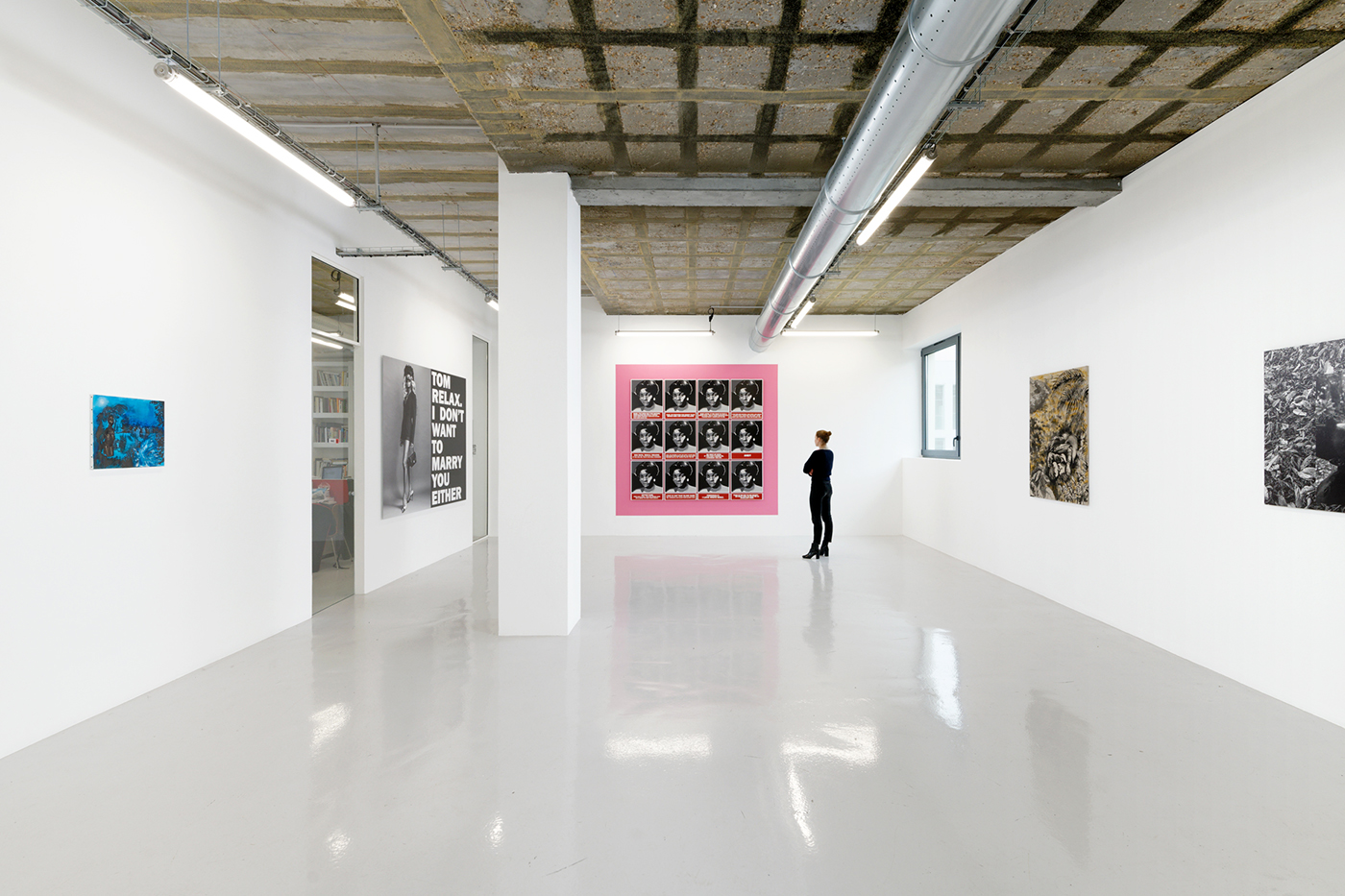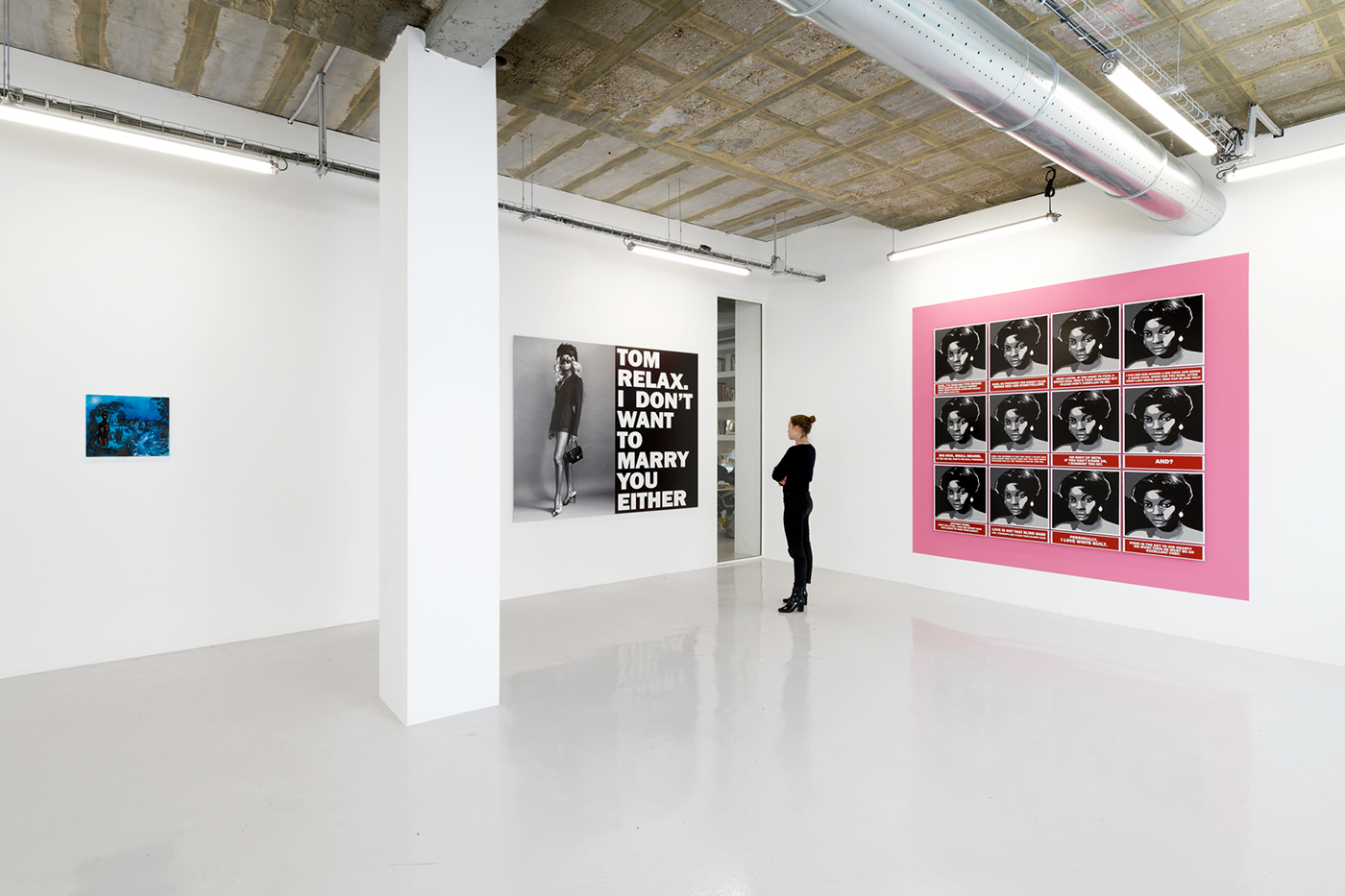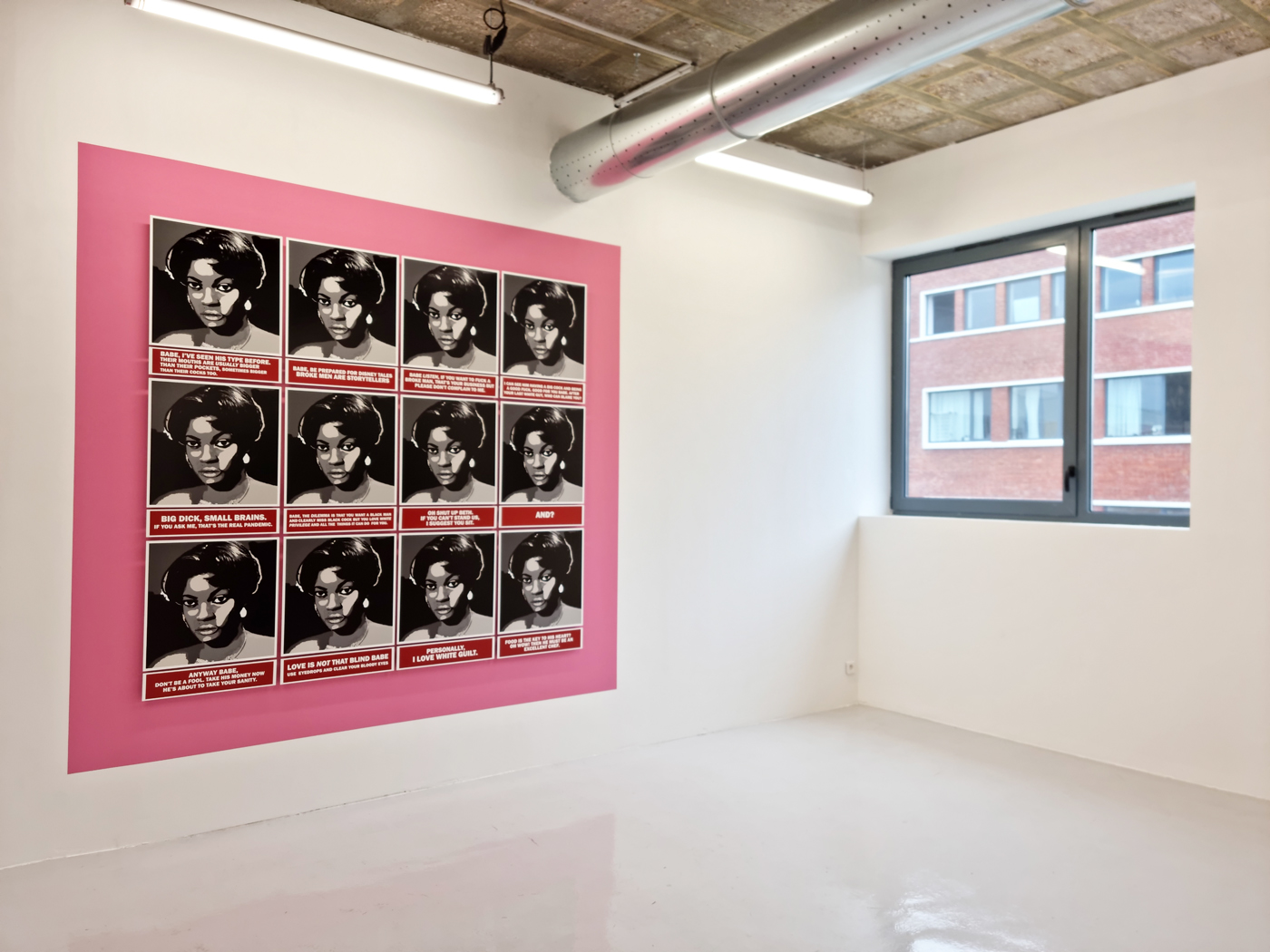Elewa

Oroma Elewa
Babe Listen No.1, 2021
Area Babes and Ashawo Superstars
Edition of 5 ex + 1 AP
© Oroma Elewa. Photographie : Aurélien Mole

Oroma Elewa
Babe Listen No.1, 2021

Oroma Elewa
Babe Listen No.1, 2021

Oroma Elewa
Babe Listen No.1, 2021
Oroma Elewa
« In form, my work is very multi-disciplinary. I am combining text, photography, mixed digital media and video.
Ultimately however, I am working under the umbrella of visual and performance art.
I believe that everyday experiences are valuable material for performance art. This body of work borrows from my personal experiences, observations and conversations I have or/and had with other women, creating a general understanding and empathy for my fellow women. The work is both a critique and a reflection on the society as I develop the material on daily basis.
The statements of the work titled « BABE LISTEN. Area Babes and Ashawo Superstars » (2021) are both fictional and real. The entire project unfolds like a satire that follows the lives and experiences of my African female characters all of which are versions of myself. I wanted to show thoughts or actions that are often considered as taboo or private and the ways that women navigate or negotiate sex or class or power in contemporary times.
By using language, it allows to give weight and voice to our experiences and reflections and to understand how it can affect our psychological and emotional state.
In general, this work uses cultural attitudes to talk about contemporary womanhood which every woman can relate to. However, it is important to understand that ?African feminism? is a real thing and it exists. I wanted to show how African feminism differs in both language and delivery. How it exists outside of the normative contour of white feminism. How rooted it is in our daily experiences and not just as a concept.
The characters of this work are taking a different stand against a particular kind of societal expectations, they are breaking free of a particular kind of indoctrination and shame etc. There is a matter-of-factness about the approach taken here which is very reflective in nature and does not spare anything or anyone. Meaning that it points a finger at the subject first.
Around the age of 14-15 years old, I realized that I did not agree to many things - not anything specifically, but I had too many questions and I needed explanations. My questions led to more questions, more research and knowledge. Once I found what I agreed with, I realized it was not always popular opinion, I also quickly realized that I had to find a community and space for myself and for my work. This community also became a group of individuals who also said: ?No!?; who said: ?Actually, maybe not??, ?How about this perspective?? or ?This is ok. too?
I have recently met Otobong after a live broadcast I did on Instagram. I did not realize she followed me and the social media series of my work, but she told me that she has known of my work for quite some time. Because we are both Nigerians and Transnational Africans. She understood the work so well, where I was coming from and where the work needed to go.
Otobong said she chose everyone who participated in this group show through LOVE - that is the warmest, most perfect thought I?ve ever heard.
Propos recueillis par Annabelle Gugnon